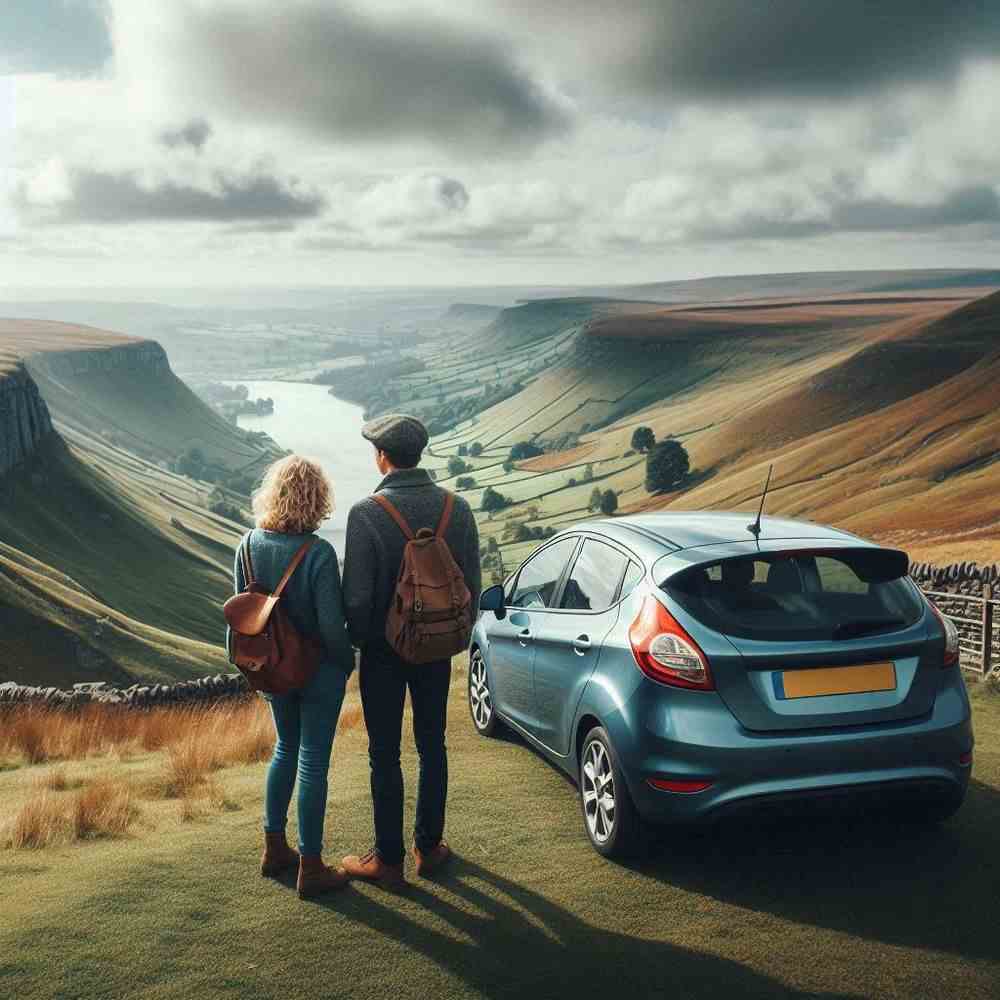Does Location Impact Insurance Premiums?
Location plays a significant role in determining car insurance premiums. Remote properties may be considered lower risk for traffic accidents but higher risk for theft or vandalism, particularly if they lack secure parking facilities. Additionally, the distance from repair services or police stations could influence the cost of cover. Providing accurate location details when applying for insurance helps insurers assess these risks appropriately.

How Can Secure Parking Reduce Risks?
Secure parking can be a most important factor in mitigating the risks associated with remote locations. Features that may enhance security include:
- Garages or locked storage units
- Gated driveways or fenced areas
- Alarm systems and motion-detecting lights
- Tracking devices installed in the vehicle
Discussing these measures with your insurer could help lower premiums or improve the terms of your policy.
Are There Specific Policies for Rural Areas?
Some insurers may offer specialised policies for vehicles kept in rural or remote locations. These policies might consider the different risks associated with countryside living and provide tailored cover options. Examples could include protection against damage caused by wildlife or weather-related incidents, which might be more common in such settings.
What Types of Cover Are Relevant for Remote Properties?
When insuring a car parked at a remote property, it’s important to evaluate the types of cover available. Comprehensive cover, for instance, might protect against damage caused by natural events, theft, or accidents. Third-party only or third-party, fire, and theft policies might offer more limited protection but could still be suitable depending on the vehicle’s usage and value.
How Does Seasonal Use Affect Insurance?
If the car is only used seasonally, such as during holidays or weekends at the countryside property, short-term or laid-up insurance might be worth exploring. These options could provide flexible cover for periods when the car is either in use or stored. Ensuring that the vehicle remains protected whilst parked, even if not actively driven, is vital to prevent potential losses.
What Risks Are Unique to Countryside Properties?
Countryside properties often come with risks that differ from urban settings. Factors to consider include:
- Damage from wildlife, such as deer or rodents
- Weather-related incidents, like flooding or falling branches
- Limited accessibility for emergency services in case of an incident
- The potential for theft in secluded areas
Discussing these specific risks with an insurer could help tailor the policy to your needs.
Can Multiple Vehicles Be Covered at the Same Property?
For those with multiple vehicles parked at a remote property, multi-car policies might be an option. These policies could offer discounts for insuring several vehicles under one agreement. However, it’s worthwhile to clarify whether all cars might be kept at the same location and how this might affect cover terms or costs.
Does Seasonal Weather Affect Insurance Requirements?
Seasonal weather conditions in rural areas can significantly impact the need for specific insurance provisions. For instance, winter storms or heavy rainfall might increase the risk of damage, whilst summer droughts could elevate fire hazards. Ensuring that your policy accounts for these seasonal risks might be advisable, particularly for long-term storage scenarios.
How Can You Provide Accurate Location Details?
Providing precise information about the property’s location and parking conditions is a good idea when applying for car insurance. Details to include might involve:
- The exact address or postcode of the property
- The type of parking facility, such as a garage or open driveway
- Security features present at the location
- Proximity to emergency services and repair facilities
Accurate reporting ensures that your insurer can assess the situation correctly and provide suitable cover.
What Additional Security Features Could Be Considered?
Enhancing security at the property may help reduce insurance costs or improve cover terms. Measures to consider include:
- Installing CCTV cameras or security alarms
- Adding immobilisers or steering locks to the vehicle
- Using wheel clamps for extra deterrence
- Investing in flood protection measures if the area is prone to water damage
Highlighting these features when discussing your policy could demonstrate proactive risk management.
How Might Usage Patterns Influence Cover?
The frequency and purpose of the vehicle’s use can also affect insurance terms. For example, cars used for commuting or regular trips may require different cover than those primarily stored or driven occasionally. Clarifying your intended usage with the insurer helps ensure the policy aligns with your needs.

What Documents Are Needed for Rural Insurance?
When insuring a car at a remote countryside property, insurers may request specific documents, such as:
- Proof of address for the rural property
- Details of the vehicle, including its registration and value
- Evidence of security measures in place
Having these documents ready can streamline the application process and improve the insurer’s ability to offer accurate quotes.
What Happens If the Property Is Unoccupied?
Unoccupied properties may present additional risks, such as increased likelihood of theft or delayed response to emergencies. Insurers might impose certain conditions or exclusions for vehicles parked at such locations. Exploring cover options that specifically address these scenarios could help protect your investment.
Conclusion
Securing car insurance for a vehicle parked at a remote countryside property involves addressing individual pitfalls and risks. From assessing location-specific factors to enhancing security and considering seasonal conditions, tailoring your approach could help ensure the right level of cover. For detailed quotes and personalised advice, contact insurers experienced in providing cover for rural properties. Take the necessary steps to protect your vehicle and enjoy a firm sense of reassurance.
